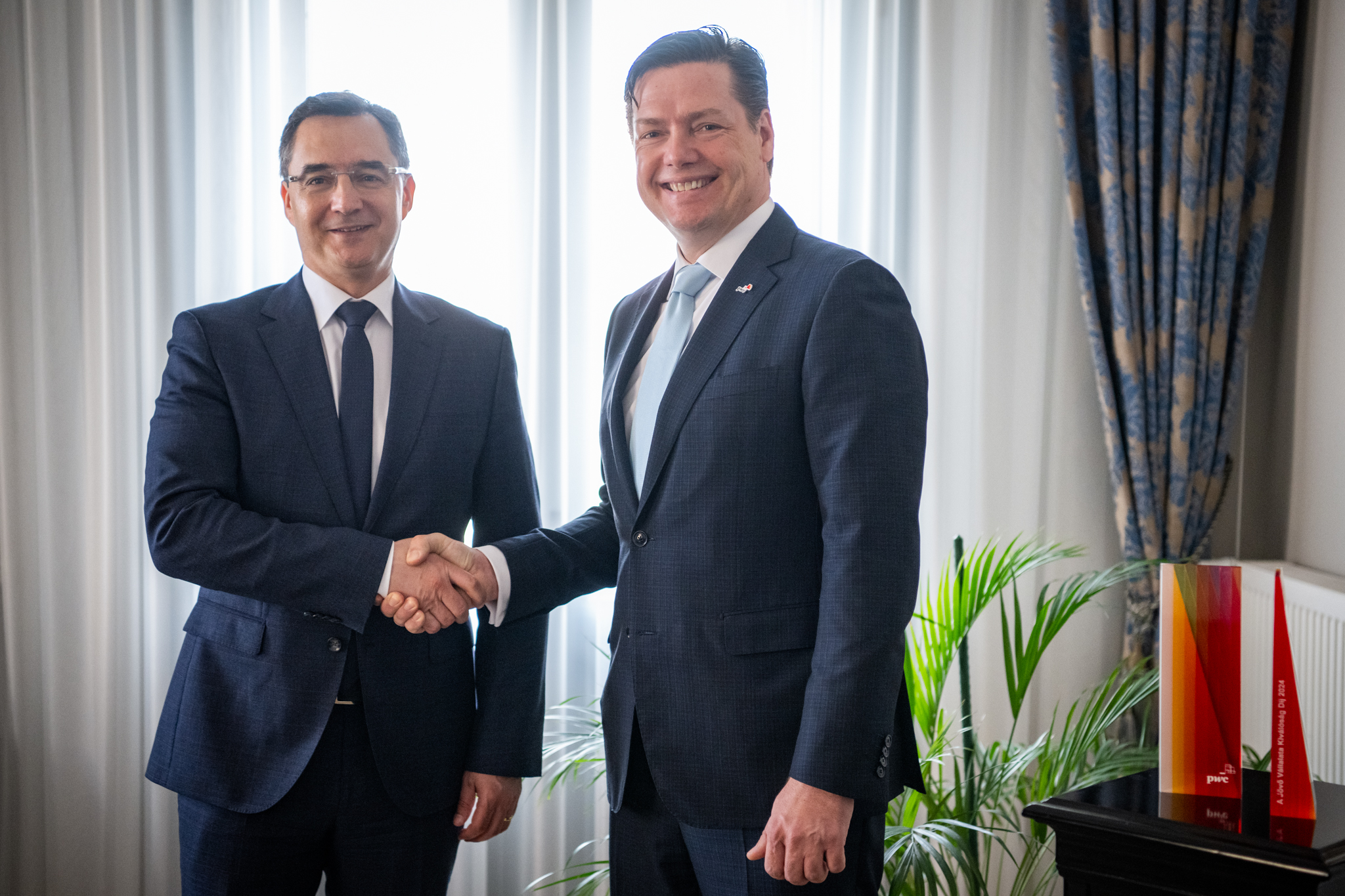Business Meets Government Returns Fully in Person for 7th Summit
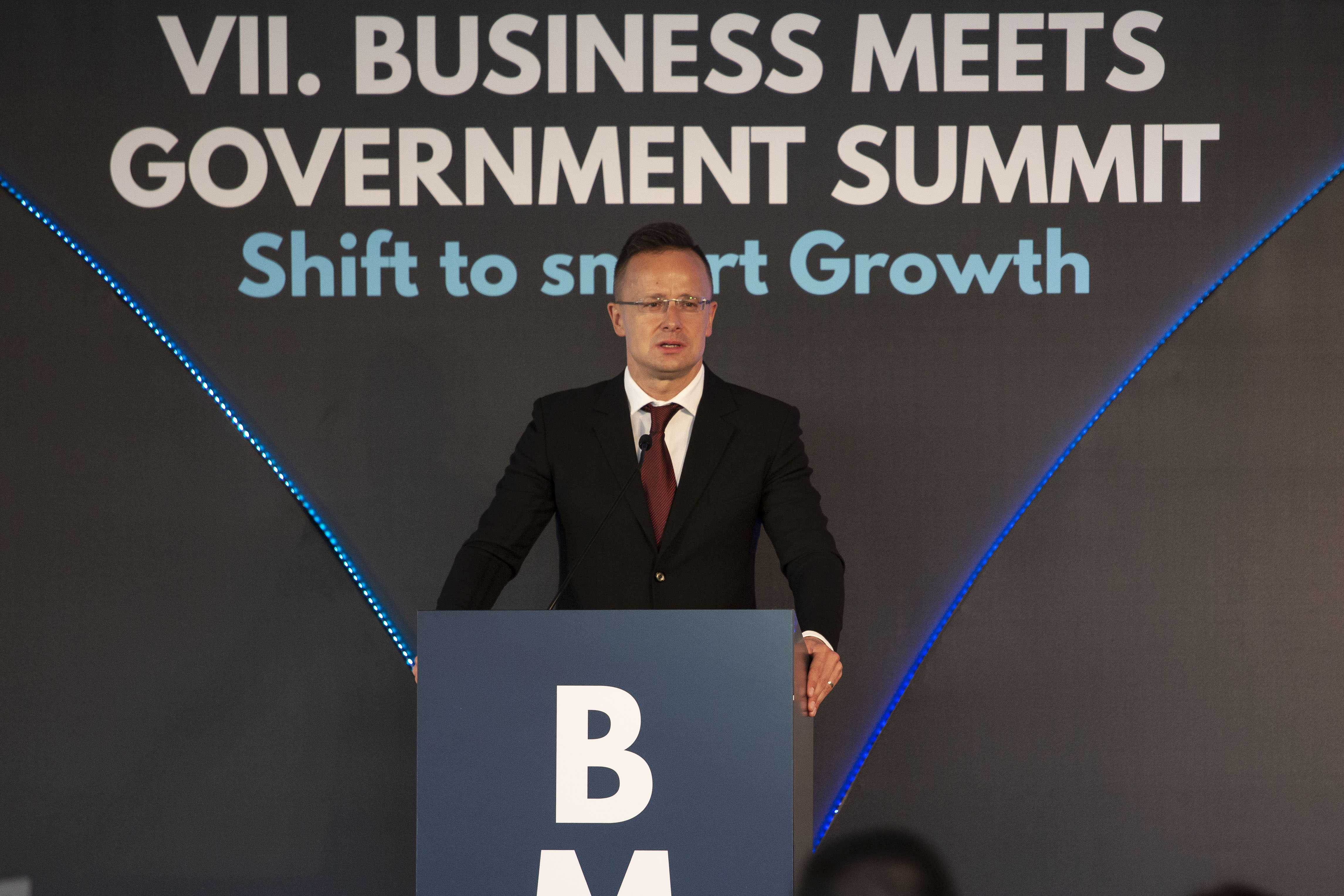
Minister of Foreign Affairs and Trade Péter Szijjártó.
Photo by AmCham
Having been held as a hybrid event last year due to COVID, the seventh annual AmCham-Hungarian Investment Promotion Agency “Business Meets Government” summit was once again held fully in person on October 21, allowing analysis and discussion of the macroeconomic trends that will lay the foundations of our post-pandemic future.
In his opening speech at the conference, held at the Marriott Hotel Budapest, the Minister of Foreign Affairs and Trade Péter Szijjártó talked about what made Hungary stand out from Europe in handling the pandemic. The key was that Hungary realized early on that the coronavirus was not only a healthcare challenge but would also have severe effects on the economy, he said.
The major debate last spring was around whether the state should finance unemployment or the prevention of it, he said. “We decided on the latter and put together the most robust investment incentivizing program to date.”
Last year a total of 1,435 companies decided to take advantage of the scheme, he added. As a result, HUF 1.7 trillion in investment has been made and 270,000 jobs saved, with 22 U.S. companies involved in the program securing 14,000 jobs.
Meanwhile, the state had not ended the regular cash incentives available before the pandemic either, Szijjártó noted. Of this, USD 220 million in investment was related to U.S. companies, and 15 new contracts were signed. American companies created the highest number of jobs in 2020, the minister said.
Talking of records, Szijjártó highlighted that the country has never seen such a high growth rate as in the second quarter of this year (18%), and there have never been so many people employed since the days of Communism.
During the summer, the economic performance of the country reached the level of the pre-pandemic times, Szijjártó continued, adding that the global economy will only arrive at a similar stage in the second quarter of next year according to forecasts.
“This means we are 1.5 years ahead of the level of the global economy”, he said.
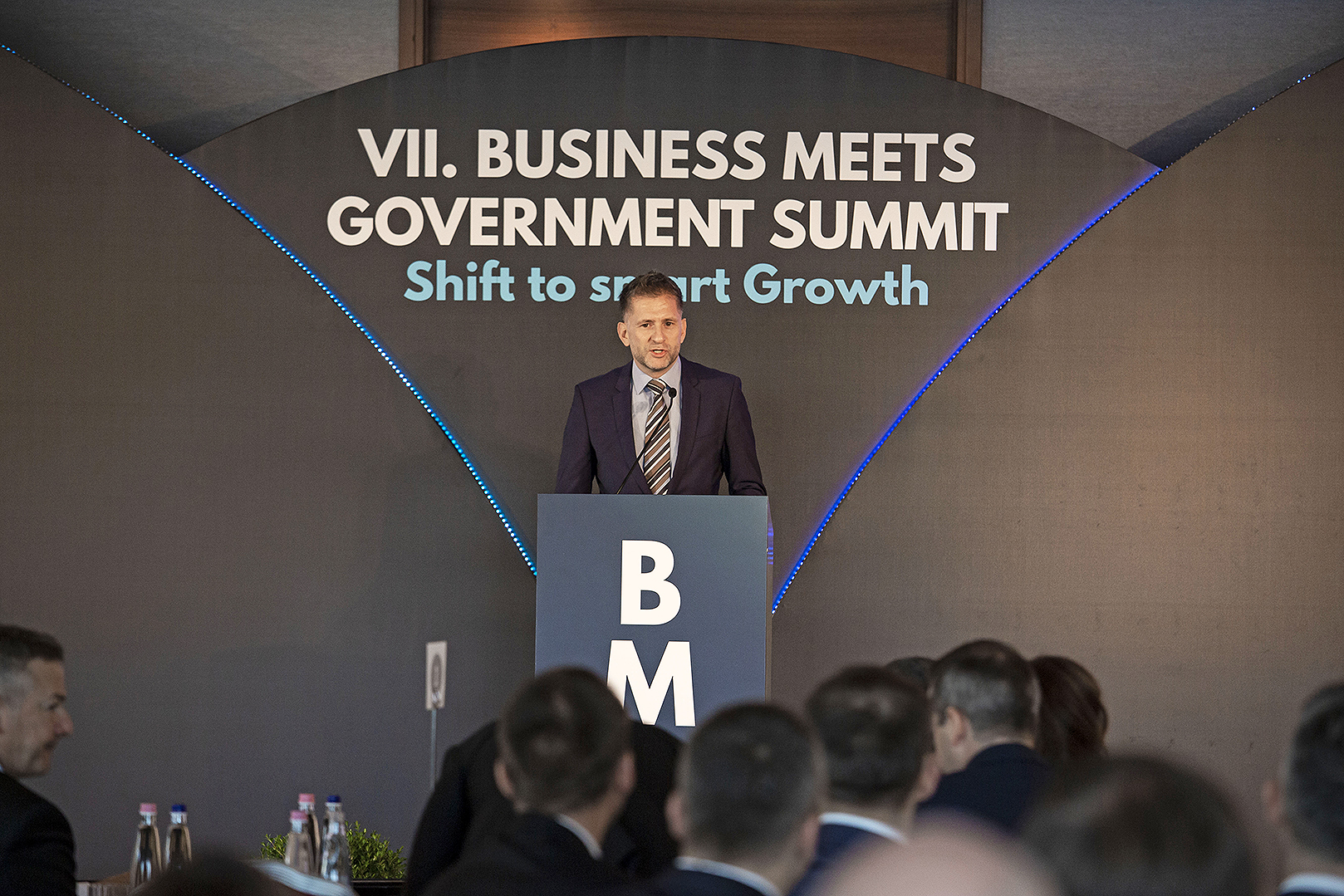
AmCham president Zoltán Szabó.
Quicker Reopening
Launching an extensive vaccination program earlier than many countries was one reason for that “advantage,” Szijjártó said, as it allowed Hungary to reopen sooner than most European states.
“The second reason was that you kept people employed, invested in new capacities and modernized technologies so when it comes to the global race for the redistribution of the economic capacities, without exaggerating, I can say that Hungary is one of those who won,” Szijjártó told the audience.
The minister also talked of future plans, including further investment in higher education, digitization, and the steps the state has taken to ensure the security of the energy supply.
Deputy Governor of the National Bank of Hungary (MNB) Barnabás Virág gave a brief overview of the country’s macroeconomic performance after the pandemic.
“Only 11 member states of the EU have been able to reach pre-crisis GDP-levels; six of these are from the CEE region, including Hungary,” he said. Looking ahead, the region and Hungary will also be the fastest to recover from the pandemic, he added.
The country is in a good position in terms of employment, having managed to retain and even increase its employment rate.
“We were able to hold the rate of investment at a relatively high level, at around 27%,” Virág said. Keeping this rate high had contributed to a great extent to the country’s recovery, he noted.
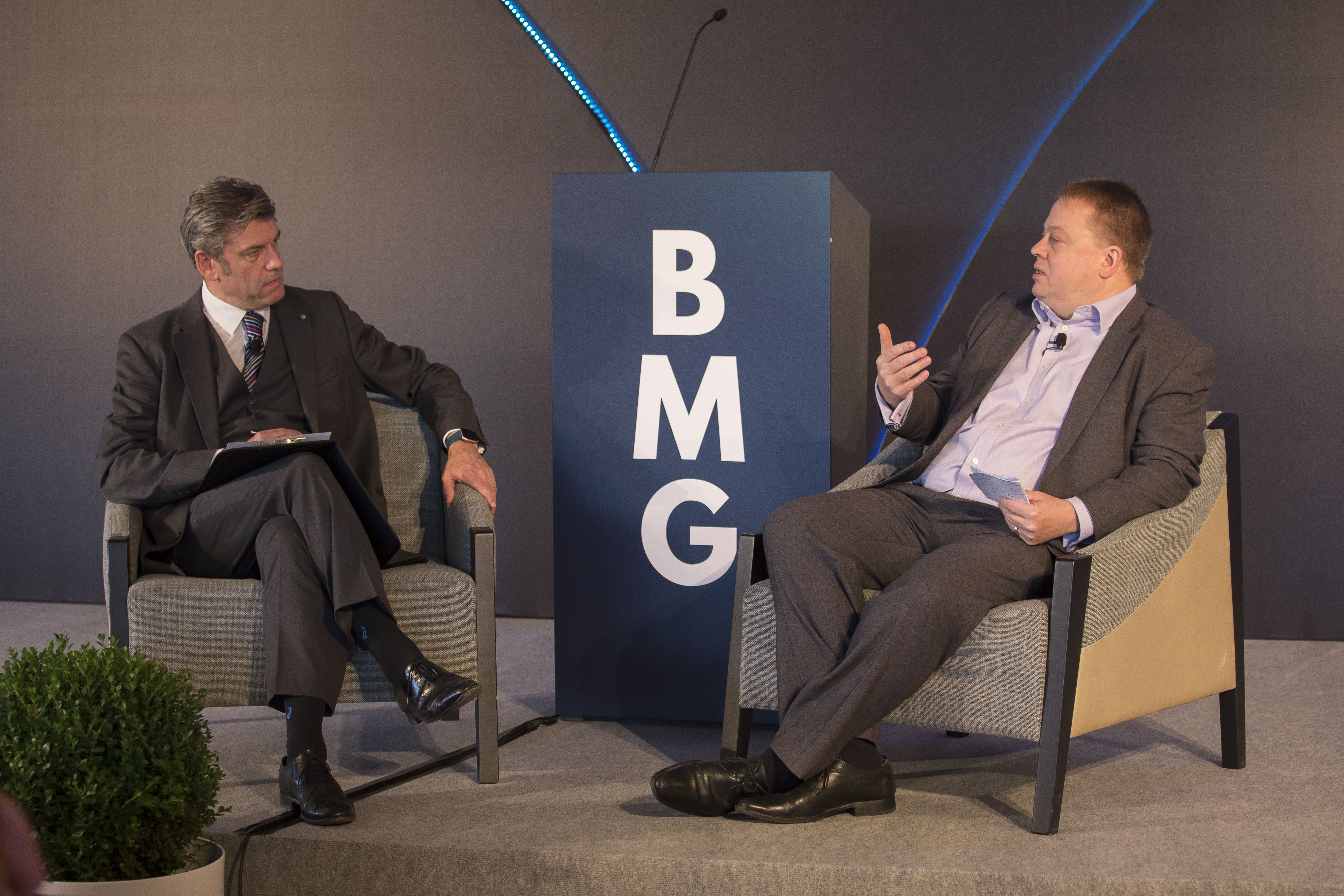
Robin Marshall editor-in-chief of the BBJ and Fabian Zuleeg, chief executive of the European Policy Center.
Top Priority
Inflation is a top priority for Hungary, and elsewhere, the deputy governor said. Once economies reopened, inflation rates jumped. Supply chain disruption, soaring fuel and commodity prices, and environmental issues have been the main factors behind it. Since rapidly rising inflation can jeopardize the recovery process, it is critical that the MNB focus on the fight against it, Virág said.
“We were among the first central banks in Europe to have opened a monetary tightening cycle in June, and we will go as long as is needed.”
Turning to future challenges, Virág highlighted several areas. “The labor market shortage bottleneck reappeared, and the competition for talent will be tougher, though still quite far from what Western economies have,” he acknowledged. In the future, wage convergence will continue, and Hungary must increase salary levels and improve productivity. It will also have to prepare for an extremely rapid digital transformation, he added.
In the third section of the plenary, Fabian Zuleeg, chief executive of the European Policy Center, and Robin Marshall, editor-in-chief of the Budapest Business Journal, discussed the challenges Europe faces in a global competitiveness race.
“Sustainability is not an option. This is an existential question. If we continue to put it off, we are not going to address the problem and what we are going to end up with is a global ecosystem that is not functioning,” Zuleeg said, addressing a question from Marshall on the greening efforts of the continent. “We can discuss how quickly this transition should take place and what sensible steps are along the way.”
He also emphasized the need for Europe to catch up in many areas in new technology where it is currently lagging. “One way to catch up is to create the right frame to boost not only public but private investment,” he said.
“Trans-Atlantic ties are the most important ones we have in the world in terms of business volume, etc.,” Zuleeg said regarding relations between Europe and the United States. “But we should also note that the U.S. acts in its own interest, and that will not always coincide with those of Europe.” He added that the key focus of the current administration is China, “and that will affect our transatlantic relations.”
The plenary meeting was, as usual, followed by several breakout sessions to discuss matters in more detail. With panels drawn from various government ministries and departments, experts, and relevant businesses, audience members could choose from: Business Environment; Digitalization and Data; Healthcare, Labor and Employment; and Sustainability. These sessions were followed by lunch and networking.
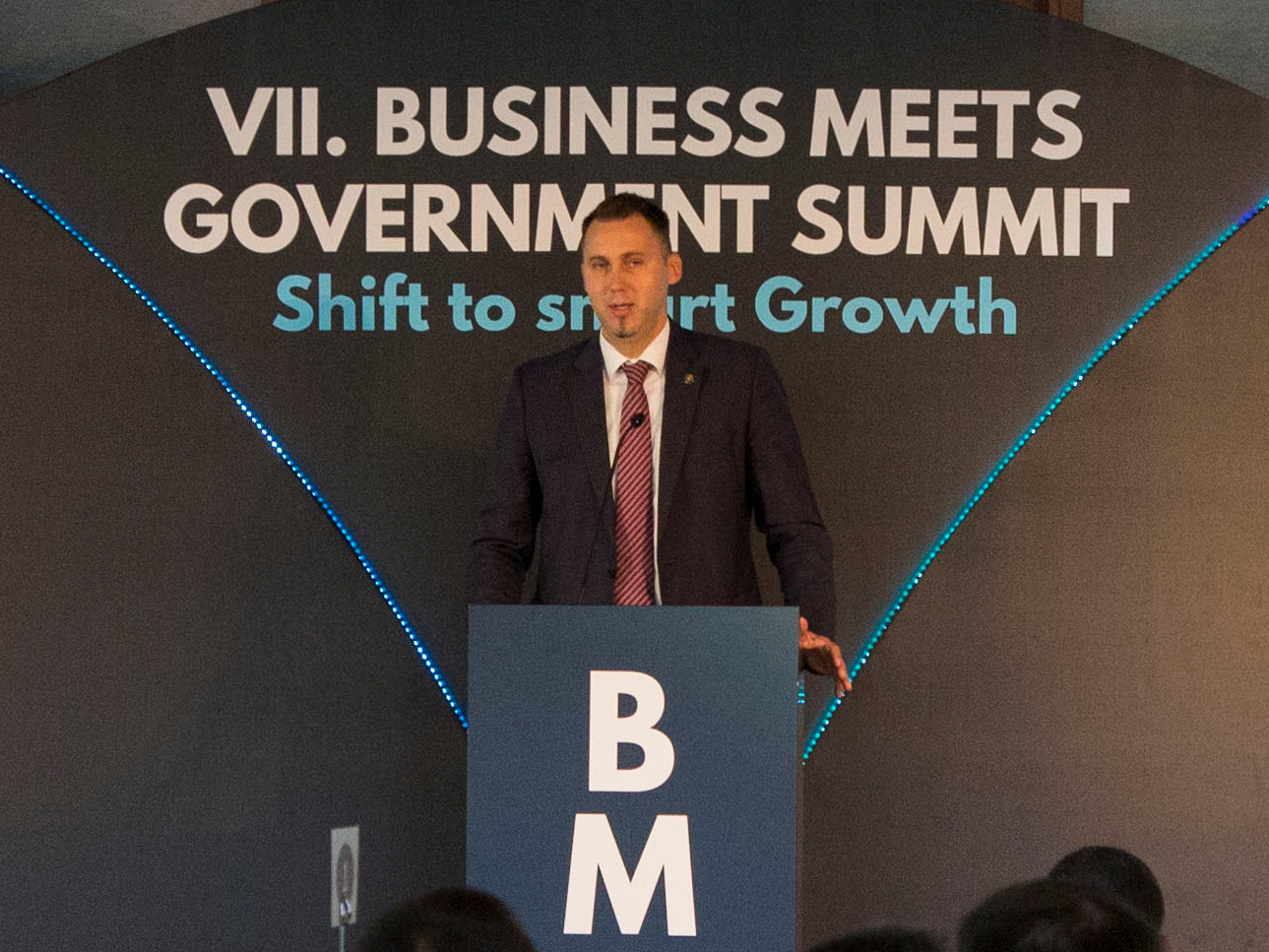
Deputy Governor of the MNB Barnabás Virág.
This article was first published in the Budapest Business Journal print issue of November 5, 2021.
SUPPORT THE BUDAPEST BUSINESS JOURNAL
Producing journalism that is worthy of the name is a costly business. For 27 years, the publishers, editors and reporters of the Budapest Business Journal have striven to bring you business news that works, information that you can trust, that is factual, accurate and presented without fear or favor.
Newspaper organizations across the globe have struggled to find a business model that allows them to continue to excel, without compromising their ability to perform. Most recently, some have experimented with the idea of involving their most important stakeholders, their readers.
We would like to offer that same opportunity to our readers. We would like to invite you to help us deliver the quality business journalism you require. Hit our Support the BBJ button and you can choose the how much and how often you send us your contributions.


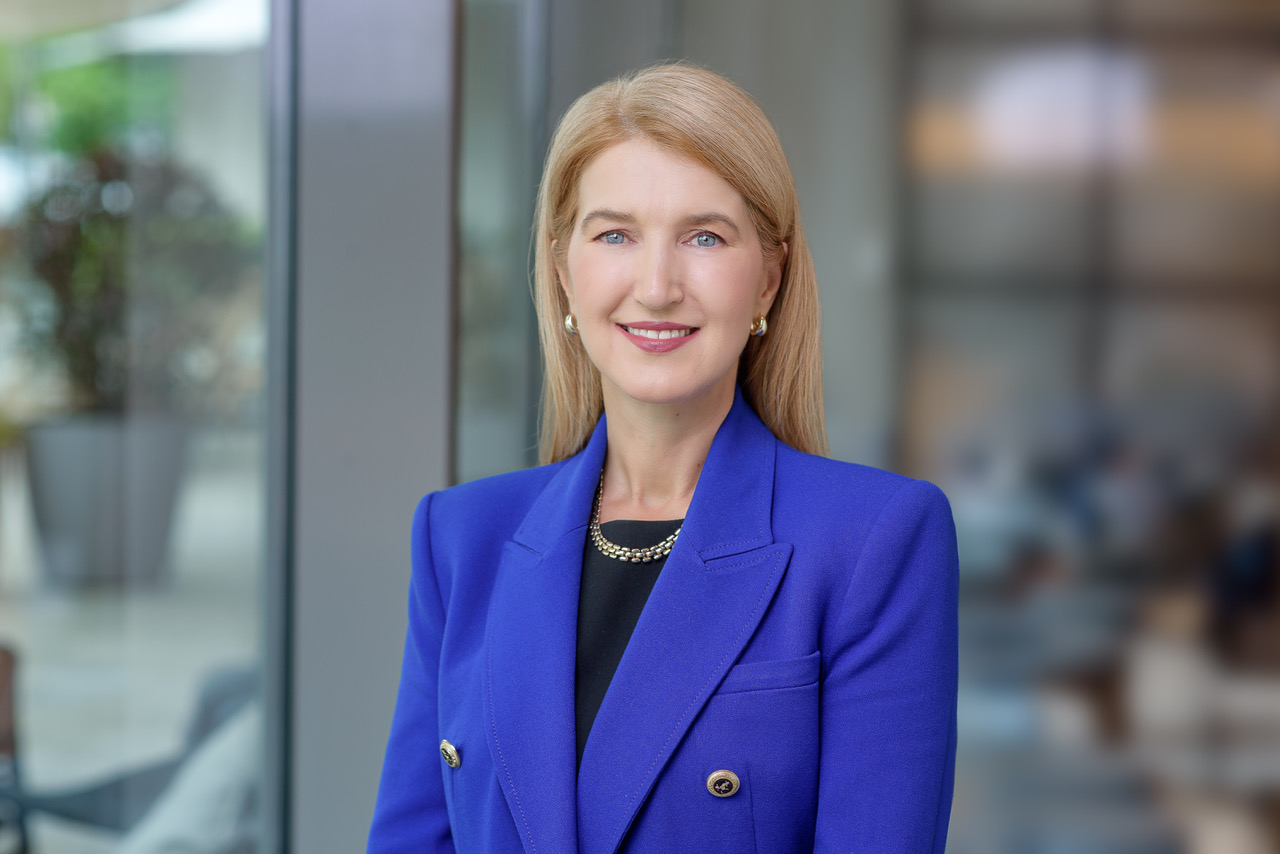




WirtschaftsagenturWien_KarinHackl_1MB%20(3).jpg)

